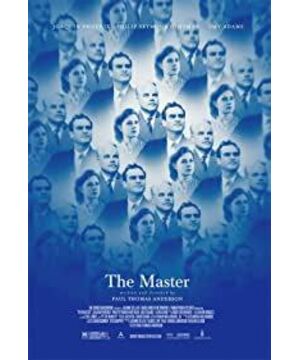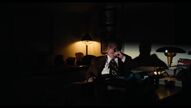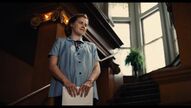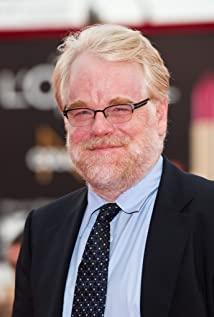This movie reminds me of Vonnegut's short story "Long Walk to Forever". The real description of the characters and delicate emotions in the novel is really moving, but after watching it, there is still a fairy tale trance. This is the tenderness of Vonnegut's description of brutal war. More men and women separated by war are like Freddy and Doroth in the movie, saying "I'll be right back, you have to wait for me" and never see each other again.
What fascinates me the most about the film is how Freddie is in state. In addition to crediting Phoenix's genius for acting, PTA used its seasoned directing skills to present Freddy's war-torn and alienated mind.
The broken family, the cruelty and torment of the war, and most importantly, the separation from his lover, have dealt a major blow to Freddy's heart. The same shot appears three times in the film, and the shot is of a turquoise sea being tumbled out of a jewel-like blue. We can probably guess the meaning of it the second time around, when the master was hypnotizing Freddy to say a word, Freddy said "away", and then this shot popped up and I was Understand, this is probably the trace of the boat rolling over the sea when Freddy left, and it may also be the scene where Freddy is trapped in the wear and staring at it day in and day out. The shot symbolizes the greatest damage to his heart—separation from a lover, and chewing on that pain and remorse day in and day out during the war.
In addition to this subtle image, the overall film design also creates such a style of internalized display everywhere. The first is the escape between scenes. After Freddie returned to society, he first worked as a photographer in a shopping mall. After escaping, the scene immediately changed and he came to a crowded and dirty mine construction site; Freddy travels to a vast and cracked western wilderness... These very different scene changes also symbolize Freddy's turbulent inner world.
The second is the use of light, shadow and color. When the film came out to show Freddie's life on the beach, the wide-angle picture was very bright, with high color contrast, showing a weird unreal feeling; the colors in the printing room, already many indoor lighting, all have the same effect. Mysterious and confusing taste.
There are also a lot of clipping hints. It has always been a challenging problem to distinguish between dreams, illusions and reality in movies. Many movies use different tones or colors to present them, and more often use some suggestive shots and props. In this film, the handling of PTA seems natural and smooth. In the part of the reception where the master sings, Freddy is sleeping on a chair. He opens his eyes, and the camera shakes the master from behind the chair in front of him. When he reappears, All the women are naked; including the scene where Freddy gets a call from the master in the movie theater, and after he takes the call, the next shot is when he falls asleep on the chair in the same position as the beginning. At the same time, the cinema is also a darkroom that creates illusions...
Before watching this movie, I got the message that this is a movie about a cult. But as I've shared before about the definition of cult, it's just an ideological debate. The depiction of the so-called "Origin Teaching" of the master in the film is not a meticulous presentation with an obvious critical attitude, but more of a fusion of the master and Freddy. Although we can see it from some corners, such as the characterization of the master's family and their claims to treat leukemia, etc., we can find that the master is actually just a pioneer and experimenter with lofty ideals. Ledy's intimacy comes from the fact that they are both lonely individuals struggling in a twisted world.
At the end of the film, the master gives Freddy his final piece of advice, "Go and live alone until you don't have to follow any master." That is - find yourself. Phoenix here has contributed a shocking performance. The facial close-up for more than a minute presents extremely full, intense, restrained and layered emotions, comparable to Nicholson in "One Flew Over the Cuckoo's Nest." Looking forward to "Joker"!
View more about The Master reviews











